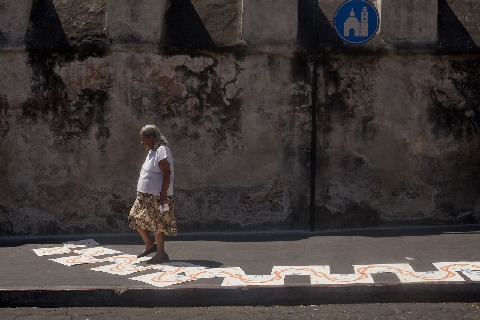Centro Cultural Jardín Borda,
Apr 03, 2014 - Apr 06, 2014
Cuernavaca, Mexico
Between Utopia and Disillusionment: Art as an Activator of Political Experience
by David Gutiérrez Castañeda
Between Utopia and Disillusionment: Art as an Activator of Political Experience Sofía Olascoaga, a Mexican art curator and promoter, launched a long-term community process from 2011 to 2014 that was funded by various national and international agencies (Cda Projects, Museo La Tallera, and the Ministry of Culture of the State of Morelos, Mexico, among others). It was a sui generis process. Although the work dynamic is profoundly political, it did not consist of focusing actions on vindicating the rights of social groups, or of mobilizing protests on social conditions; instead, interested in finding out how social relations and critical thought take shape around community- building, with the help of a few accomplices Olascoaga developed a work platform through which, based on specific historiographical references, they promoted a series of art exercises whereby each participant outlined, reflected on and interlinked discussions on the current status of community-building. Olascoaga promoted, organized and invited a group of academics, artists and cultural promoters to develop an affective genealogy around a complex history. Entre Utopia y Desencanto (Between Utopia and Disillusionment) a similar title to Claudio Margis’s book, consisted of collective research centered on Ivan Illich (Vienna, 1926 – Bremen, 2002), his pedagogical and intellectual work and the linkage of his projects to trends in the fields of liberation theology, sociology, social movements, psychoanalysis and politics in the city of Cuernavaca, Morelos, Mexico, between 1950 and 1980, within the framework of the Centro Intercultural de Documentación (Intercultural Documentation Center – CIDOC). We were invited to attend a Public Gathering from 3-6 April 2014, where some of the core ideas and mechanics were presented through an exhibition, documentation center, staged actions, performances, shows, a party, workshops and conferences at the Jardín Borda in downtown Cuernavaca. Dissident Intellectuality and Praxis Illich’s presence in Cuernavaca was not circumstantial. It had repercussions on a series of concerns voiced by the intelligentsia and critics of Mexican Christianity during the 1960s, along with a series of international work and social-management networks that engaged in discussions on economic development, the logic behind missionary work and intercultural relations (which we now would call postcolonial). Illich, who during the 50s and 60s divided his work as an academic, dissident priest and social agent between Puerto Rico, the U.S. and Mexico, worked together with people like Jean Robert, Brasulio Miguel Hornedo, Gustavo Esteva, Valentina Borremans, Feodora Stancioff and Gerry Morris, among many other friends, to promote the creation of CIDOC in 1966 (formerly the Center for Intercultural Education founded in 1961). The Center combined the study and experimental learning of multiple languages, particularly Spanish for foreign missionaries, with sociological, pedagogical and anthropological endeavors using an interdisciplinary approach, while also promoting and debating the foundations of Christianity as a geopolitical technology but also as an ethical debate in Latin America (what we will later refer to as liberation theology). As dissidents of the ecclesiastical policy framework, Illich and friends argued that missionary work combines ethical and political paradoxes that can only be broached through an in-depth grasp of political economics, languages and social history. Concerned by those issues and living what might be called a monastic life of dissidence, they focused their critical research on literacy programs, body language and its perceptions, and also on what we now call development, scarcity and need studies. Over the course of a decade, CIDOC published almost sixty Cuadernos (Notebooks) using a highly versatile format (photocopies) that was able to prompt critical thought faster than publishing houses could at that time. At the same time, every year they organized international discussion forums attended by people like Paul Goodman, Erich Fromm, Peter Berger, Paulo Freire and Sergio Méndez Arceo, among others. It was in that context, Illich published his first texts in Spanish, such as La sociedad desescolarizada (1971), La convivencialidad (1973), and Energía y equidad (1974).
|









